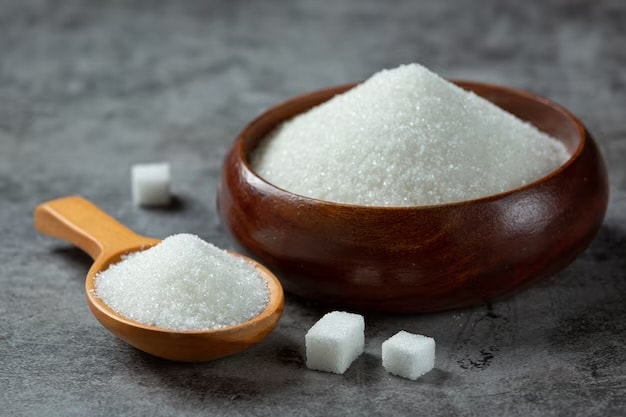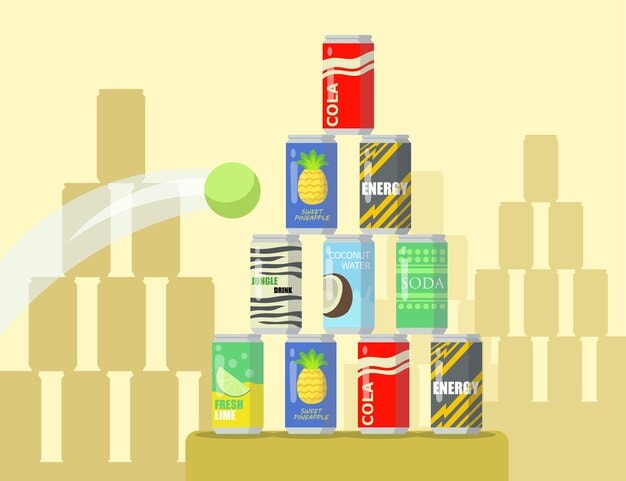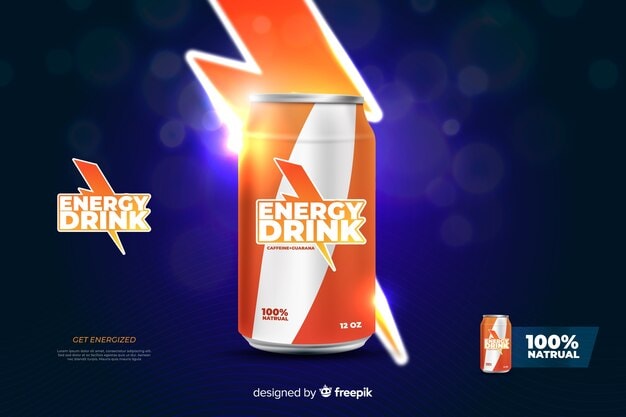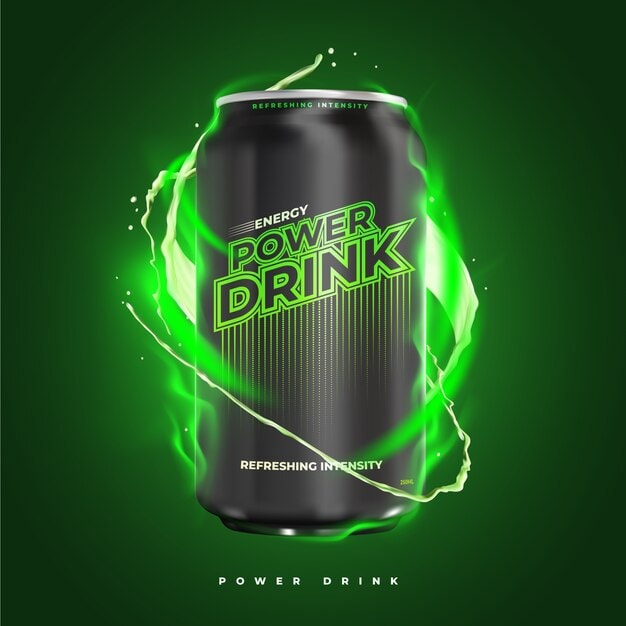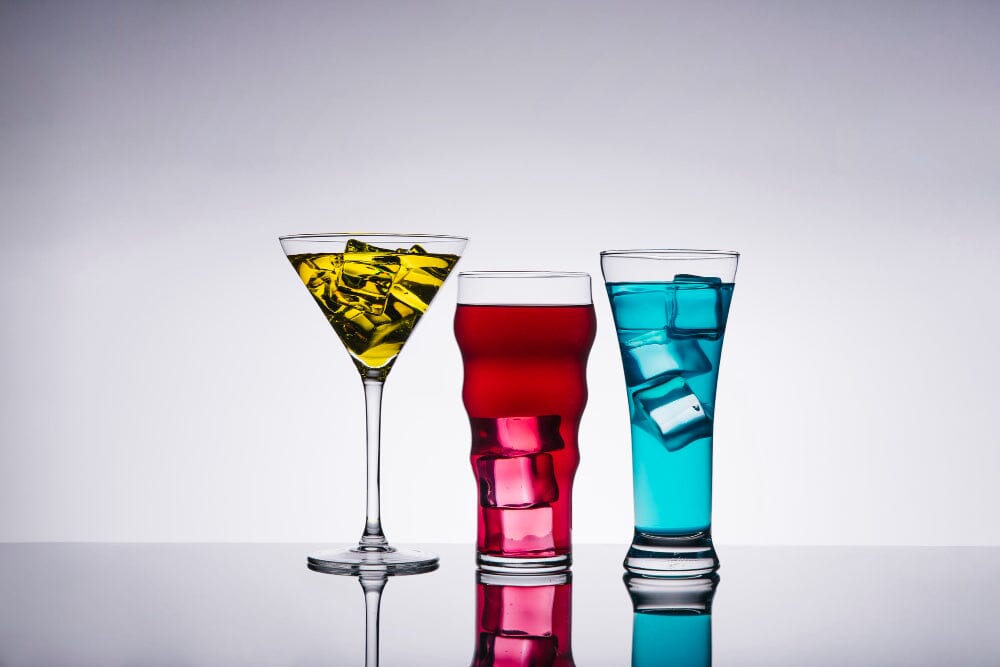
The All-in-one Guide to the Best Energy Drink for Performance Enhancement
In today's fast world, many people need an extra kick to get through the day.
Whether you are an athlete wanting to enhance your performance or a busy professional seeking to stay alert, the energy drink can really be a game-changer.
This ultimate guide will examine the different types of energy drinks, ingredients, and how to make the right choice for you.
Understanding Energy Drinks
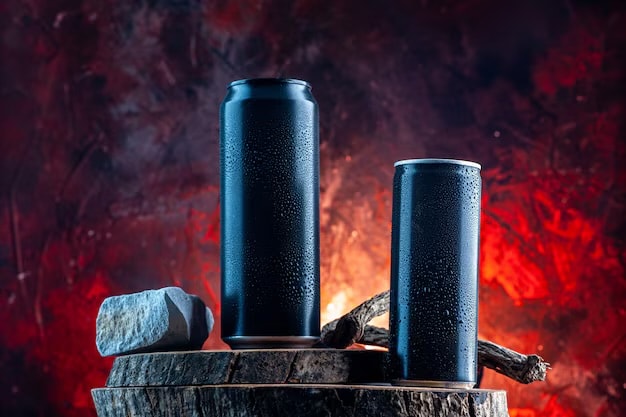
Energy drinks is beverages designed to provide an energy increase, often through the use of caffeine, sugar, and other ingredients.
They have gained immense popularity due to their ability to enhance performance and increase alertness.
However, not all energy drinks is created equal. The energy drink for one person may not be suitable for another, depending on individual needs and health considerations.
The Role of Caffeine
A leading compound found in energy drinks includes caffeine. It is a stimulant that can enhance focus and increase alertness, resulting in improved physical performance.
One usually doesn't know how much amount they are getting in an ordinary drink.
So, it may be important to choose based on the tolerance level since some people thrive on increased levels of caffeine, whereas others may get jitters or anxiety even from minute consumption.
Sugar Content
Most commercial energy drinks have a high quantity of sugar. This obviously may give instant energy and increase alertness but drops afterwards.
In case a long-term energy supply is a target, sugar content by energy drink is crucial.
Since sugar-free energy drinks, with alternative sweeteners even available, there are considerable amounts of choices for keeping a low sugar diet, particularly in these products.
Additional Ingredients
Beyond the ingredients that involve caffeine and sugar, other varieties of ingredients are also part of many energy drinks, like vitamins, amino acids, and herbal extracts.
Some help complement caffeine's effects and offer even greater health benefits.
For example, B vitamins are added to support energy metabolism, whereas amino acids such as taurine may enhance performance in physical activities.
Energy Drink Types
Energy drinks is divided into many kinds that differ and have special requirements for its customers, depending on people's choices and preferences.
Learning this knowledge will assist individuals to find the most efficient energy drink they can choose depending on performance needs.
1. Old school, traditional, mainstream energy drinks
These are the most common types of energy drinks, usually high in caffeine and sugar. Brands like Red Bull and Monster are examples.
They are meant to give quick energy and are usually taken before workouts or during long hours at work.
2. Natural Energy Drinks
A more healthier alternative, of course, is a natural energy drink. This one will probably contain more organic ingredients and less sugar with sources like green tea or yerba mate to obtain their energy.
Companies such as Runa and Guayaki are designed to produce natural energy with its benefits being seen by a healthier audience.
Performance energy drinks is specifically designed for athletes, often containing a blend of caffeine, electrolytes, and amino acids.
These drinks improve endurance, strength, and recovery. Brands such as Gatorade Endurance and Powerade are designed for athletes, hydrating and energizing during intense workouts.
3. Pre-Workout Supplements
Not being strictly energy drinks, pre-workout supplements are taken in a liquid form, which is usually designed to give an individual energy and enhance performance prior to exercise.
They tend to have more caffeine and other performance-enhancing ingredients.
Brands that are preferred by the gym rats and athletes include C4 and BSN N.O. Xplode.
Selecting the Energy Drink
When choosing the energy drink to boost performance, there are a number of factors that need to be considered. Knowing your needs and preferences is key to making the right choice.
1. Know Your Caffeine Tolerance
Before you choose an energy drink, you should know your caffeine tolerance.
If you are sensitive to caffeine, you may want to choose a drink that has low levels of caffeine or one that uses natural sources of energy.
If you have a high tolerance, you may need a drink that contains higher levels of caffeine for a more significant energy increase.
2. Consider Sugar Content
As mentioned above, sugar content in energy drinks varies a lot.
If you are conscious about sugar intake, consider sugar-free energy drinks or ones using natural sweeteners.
Read the labels and understand the nutritional information so that you can make a well-informed decision.
3. Look for Additional Ingredients
Some energy drinks add some good quality through the ingredients used in preparing them.
There are ones which have B vitamins included which support the metabolism process while exercising and can contribute to hydrations.
In a specific aim to which you have for, sometimes selecting an energy drink should provide such additional components it claims to be rich.
4. Read Reviews and Research Brands
With so many options, reading reviews and researching different brands may be helpful before making a purchase.
Look for feedback from other consumers regarding taste, effectiveness, and any potential side effects.
This can provide valuable insights into which energy drink may be the best fit for your health
Conclusion: Find Your Energy Drink for Optimal Performance
From what has been discussed throughout this book, it can be understood that the world of energy drinks is diverse and encompasses a lot of different products that meet different tastes and performance requirements.
Whether you are an athlete trying to be at the peak, a busy professional wanting to keep focused, or someone who just needs that extra push through a long day, there's an energy drink for that.
But with all these energy drinks floating around, choosing the best isn't as simple as picking up the most popular brand or the one with the most interesting advertisement; it involves choosing with great consideration of some important factors.
Knowing Personal Needs
The path to the energy drink begins with knowing what is best for you. There is no one reaction for everyone to caffeine and stimulants.
Some thrive on high-caffeine drinks while others may get the jitters or anxiety from a little bit. So, self-testing one's caffeine tolerance is an absolute must.
If you are aware of your sensitivity to caffeine, then you should opt for energy drinks that contain less quantity of caffeine or those which are drawn from natural sources of energizers like green tea, or yerba mate, for example.
Lifestyle and activity levels influence the appropriate energy drink selection.
Depending on what role an individual plays, he may or may not need performance energy drinks with enough caffeine in addition to supplying electrolytes and amino acids to fuel endurance and ensure recovery afterwards.
For example, in cases involving long working hours, an instant energy drink for immediate and rapid performance results would do just fine while having other ingredients which further enhance performances.
When choosing an energy drink, the ingredient list is paramount. While caffeine is often the star of the show, other components can significantly impact the drink's overall effectiveness and health implications.
For example, many energy drinks contain high amounts of sugar, which can lead to a quick spike in energy followed by a crash.
If sustained energy is your goal, looking for drinks with lower sugar content or sugar-free alternatives is a wise choice.
Energy drinks with good vitamin and mineral content are also useful. B vitamins play important roles in energy metabolism.
Electrolytes, important for hydration, particularly under intense exercise conditions.
Using drinks that contain more than just caffeine can be useful for your general performance and well-being.
Health Considerations
Health should always be at the top of the list when choosing an energy drink.
Though they may provide the much-needed boost, energy drinks is not without their downsides.
Too much caffeine can have some adverse effects on the body, such as increased heart rate, anxiety, and even sleep disturbances.
Moderation is the key. Pay attention to how much caffeine you're taking in from coffee, tea, and other sources throughout the day.
Furthermore, individuals with certain health conditions, such as heart issues or anxiety disorders, should consult a healthcare professional before incorporating energy drinks into their routine.
Understanding your health status and any potential risks can help you make safer choices regarding energy drink consumption.
The Role of Timing
Another critical factor affecting the effectiveness the energy drinks is the timing. The benefits derived from the energy drink will be maximized at a certain time.
You might want to prepare for exercise, and consuming the energy drink 30 to 60 minutes before exercise will enhance your performance during that exercise.
This gives your body time to absorb the caffeine and other ingredients in your body, providing you with an energy increase during that exercise.
Conversely, if you consume the energy drink too close to your bedtime, it can cause disturbances in your sleep pattern.
Generally, it is wise to avoid caffeine consumption during late afternoon and evening to maintain a sound sleep.
Therefore, knowing when to take the energy drink can enable you to utilize them while still taking care of your general well-being.
Trying Out the Energy Drink
You often have to try different energy drinks before you get the best.
There are so many different brands and types that you might have to try a few before finding what works for you. Pay attention to how each drink affects your energy, focus, and overall well-being.
Keep a journal to track your experiences, noting the brand, ingredients, and your physical and mental state after consumption.
This will help you identify patterns and preferences that guide your future choices.
Personalization is key. No two persons are alike; no energy drink will perfectly fit someone's needs.
Take the time to check out several options, including traditional energy drinks, natural alternatives, and performance-enhancing beverages.
That energy drink for you may be the one that lines up with your lifestyle, dietary preference, or performance goals.
Final thoughts
The energy drink for performance will be one that considers your individual needs, lifestyle, and health considerations.
Understanding the role of sugar, and additional ingredients can help you make better choices to support your goals.
Traditional energy drinks, Natural alternatives, or performance-focused beverages can all be a good choice if you keep it moderate and healthy.
Remember that energy drinks are only one of the tools you can use in your performance arsenal. A balanced diet, proper hydration, and adequate
FAQ
1. What is the top energy drink to increase performance?
The energy drink for performance enhancement differs for every individual. Choose options with medium levels of caffeine, little sugar, and extra healthy elements such as B vitamins and electrolytes. The two most popular types in energy drinks are natural ones and ones that are targeted specifically toward athletes for performance enhancement.
2. What is the general amount of caffeine found in energy drinks?
The amount of caffeine in the energy drink can range from a little over 50 milligrams to more than 300 milligrams per serving, so it's best to check the label to find out how much caffeine you're getting in the energy drink you are looking at purchasing, especially if you are having a sensitivity to caffeine.
3. Are energy drinks safe to consume?
Generally, energy drinks are safe for healthy adults, but only if they consume it in moderation. But if excessive consumption is taken, the result will be having an negative side effects, like increased heart rate, anxiety, and disturbances in sleep. Be careful of the total amount of caffeine taken from all sources.
4. Do energy drinks enhance exercise performance?
Yes, most energy drinks is designed to boost exercise performance by providing an immediate energy increase, improving concentration, and reducing fatigue. Drinks that contain caffeine, electrolytes, and amino acids can be particularly effective when consumed before workouts.
5. Are there sugar-free energy drink options available?
Absolutely. Sugar-free energy drinks, for example, or ones that reduce sugar, are available with several brands. These usually apply artificial sweeteners or alternative sweetening from nature to produce a flavor similar to the sweet and calories-creating taste of ordinary energy drinks without sugar crash.
6. How and when should the energy tonic be taken?
The best time to take the energy tonic would be 30 to 60 minutes before exercise or a mental pick-me-up, because that is when your body is most receptive to letting in the caffeine and other ingredients, which will then enhance the effects of performance.
7. Can energy drinks cause dehydration?
Energy drinks can cause dehydration; this is especially so where the tonic contains a very high concentration of caffeine as it is a diuretic. Hydration would be essential, especially through taking water, especially in exercise that is intense or involves the consumption of energy drinks.
8. Are energy drinks safe for health?
Yes, it includes increased heart rate, anxiety, sleep disturbances, and digestive issues. People with heart problems or anxiety disorders should consult a healthcare professional before consuming energy drinks.
9. Can energy drinks replace a healthy diet?
No, energy drinks cannot substitute a healthy diet. Energy drinks can offer momentary boosts in energy; however, they do not help the body get all its essential nutrients that a well-rounded diet will provide. Rich food and whole nutrient in the body are important to sustainable energy and overall well-being.
10. How will I pick the energy drink suited to my needs?
To choose the energy drink, assess your caffeine tolerance, consider the sugar content, and look for additional beneficial ingredients. Research different brands, read reviews, and experiment with various types to find the one that aligns with your lifestyle and performance goals.
11. What is in energy drinks, and what is the impact on performance?
Energy drinks generally contain a mix of caffeine, sugar, vitamins, and other stimulants or ingredients.
Caffeine is the primary ingredient in the energy drink that provides the energy boost, thus enhancing alertness and focus.
However, the amount of caffeine per serving can vary greatly from one brand to another, sometimes up to over 300 mg in a single serving or between 50 mg in others.
Another popular ingredient is sugar. Sugar can provide quick energy. The problem is, with a lot of sugar content, one might experience a huge energy peak but then crashes and doesn't deliver for a sustained period of performance.
A lot of companies are already manufacturing sugar-free products or products low in sugar.
Other ingredients may include B vitamins, which are essential in energy metabolism, and amino acids such as taurine that can help with endurance and recovery.
Some energy drinks also contain herbal extracts, including ginseng or guarana, which may add some extra energy-boosting properties.
Knowing these ingredients will guide you in selecting an drink that fits your goals for performance.
12. Are energy drinks safe to consume by everyone?
While energy drinks is usually safe for most healthy adults who consume them in moderation, they are not suitable for everyone.
People with certain health conditions, such as heart disease, anxiety disorders, or caffeine sensitivity, should be careful. High caffeine levels in many energy drinks can increase heart rate, cause anxiety, and lead to sleeping disorders, especially in sensitive individuals.
The amount of caffeine pregnant women and adolescents should consume is also restricted due to health risks.
Energy drinks must be consulted with a healthcare provider, especially if you have any underlying medical conditions or are taking prescription drugs that may react with caffeine.
13. How do energy drinks compare to coffee or tea in terms of performance enhancement?
All energy drinks, coffee, and tea contain caffeine as the active ingredient responsible for improving performance and alertness. Nevertheless, they are different in composition and effect.
Coffee usually has a higher level of caffeine per serving, making it a more efficient choice for those looking to make a quick energy boost, but it often lacks the boosters that are found in these energy drinks, such as the B vitamins or electrolytes, which help improve athletes' performance and recovery during exercise.
Tea, on the other hand, has a generally lower caffeine content than both energy drinks and coffee, but it also contains beneficial compounds such as L-theanine, which can help relax and focus without the jitters associated with caffeine. Ultimately, it's a matter of personal preference, caffeine tolerance, and performance goal.
14. Can energy drinks be used as a replacement for hydration during exercise?
Energy drinks are not a hydration alternative. Even though some of these beverages do contain electrolytes, they tend to contain other effects: most are having an significant amounts of caffeine and sugar that are dehydrating factors.
During exercise, it is important to hydrate with water when the activity is long or intense.
If you decide to use an drink to fuel your exercise, you will need to balance this with enough water to keep you hydrated.
For longer workouts, especially in hot conditions, it is best to use hydration sports drinks that are meant for hydration, which deliver electrolytes without excessive sugar or caffeine.
15. What factors should I consider when choosing the best drink for my needs?
When choosing the drink, consider the following factors:
• Caffeine Tolerance: Determine how sensitive you are to caffeine and choose a drink that has an appropriate amount of caffeine. If you are sensitive, opt for lower-caffeine or natural energy drinks.
• Sugar Content: Look for very low or no sugar concentration in the drinks to have an energy crash. Sugar-free drinks give a cleaner effect of energy.
• Other Ingredients: Look for drinks that have an addition of good ingredients like B vitamins, electrolytes and amino acids for performance plus recovery.
• Purpose of Consuming: Decide if one needs it for exercise work or study as different sports drinks cater to different situations.
• Health Considerations: Be mindful of any health conditions or medications that may interact with caffeine or other ingredients in energy drinks.
* Medical Disclaimer - The following information is for educational purposes only. No information provided on this website, including text, graphic, and images, are intended as substitutes for professional medical advice. Please consult with your doctor about specific medical advice pertaining to your condition(s).


